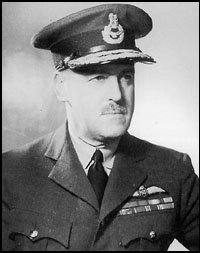The main question of the thread is in the title. Could the Allies have held Rabul in early 1942 assuming a POD or two and if so what are the impacts on the Pacific War?
I have looked at it. There are political and logistical problems. The political problem is the Americans. The logistical problem is also the Americans. Seed next remark.
.... I’m not convinced strengthening troop numbers in Rabaul is quite that useful. Better to keep men on hand for reinforcing mainland New Guinea.
From the naval geography and the means available... (Maybe a brigade strength garrison.), the troops have to be Australian. I do not see from where they come. I could handwave and suggest that either from returning Australian forces coming from North Africa, or from Volunteer forces in Country training for future inter-Empire overseas deployment... but that means the Singapore deployments and the Malay Settlements stationing does not happen pre-Pearl Harbor, or at least not as much as it did RTL.
And then there are the three problems of sea-lift, infrastructure construction and AIR DEFENSE.
And that brings us to politics and the Americans.
Australia is a partner nation inside the British imperial system. Whatever else one might want to do about Rabaul (and Port Moresby), one has to clear things in Canberra, London and Washington and not necessarily in that order.
The London PoV and the RN point of view is the Singapore Bastion Defense. Stop the Japanese north of the Malay Barrier. Rabaul and Moresby are backwaters.
The Australian point of view is colored by the British view. Stop the Japanese as far north as possible. They buy into the Singapore Bastion Defense.
The Americans are the ones at the ABC-1, ABC-2, and the ABD conference who warn the British, that Germany First and USN power projection forward into the northern arctic and eastern Atlantic, means British plans to use PACFLT and their own notional Force Z to nutcracker the IJN in the South China Sea in a reprise of the Mediterranean Strategy the RN uses against the Italians is logistically impossible. The bases distribution , airpower tools, sea lift and naval geography favors the Japanese. The USN view is that the Malay Settlements and the Philippine Islands are goners and that rational naval planning has to think about fighting in Indonesia. But even they do not see that the Japanese will get as far as New Guinea. Like the British, they underestimate the Japanese and they do not recognize the criticality of Darwin, Moresby or Rabaul. They are just as screwed up as the British.
With that background, the allies are slow during the ABDA phase of the fighting to getting forces forward to backstopping secondary positions, like Rabaul. They have less than three weeks to build in an airfield, land that brigade, mine the approaches and provision the garrison to stand a siege until relief forces can arrive.
IF, and it is a big if, the Australian government had looked at the situation with unreasonable almost ASB level foresight and gotten it in the defense ministry heads that Darwin, Moresby and Rabaul should be developed for defense reasons, and this would have to be done before 1937, they would build the Alice Springs to Darwin railroad, built an RAN base in Darwin harbor, improved Port Moresby as a forward outpost and turned Rabaul into the same. They would have built air bases at all three locations and made it policy that Australian territorials garrison these forward outposts. But they did and do not until the crisis is upon Canberra and after 7 December, it turns out that the UK, to whom Canberra looked for their defense arrangements, are through FOREVER in the Pacific.
And that is when the Americans become a political problem and his name is MacArthur.
He is a non-problem as far as January 1942 is concerned,
except that Washington, for political reasons, is shoving troops, supplies, and airpower forward to try to at least stabilize the southern Philippine Islands instead of stabilize upon Australia as they SHOULD have done.
Were there enough Americans on the way to handle Rabaul with Australian help? Was there enough sealift, and airpower?
a. there was a brigade (engineers and national guardsmen.).
b. enough lift to get them to Rabaul, since they floated all the way to Australian to where they had been diverted.
c. enough fighters to at least stand up a local air defense? Not sure. The types and numbers seem to have not worked in the fighting when deployed to Java.
d. was there enough time to build a defendable base at Rabaul and Moresby before the Japanese arrived on 23 January 1942? No. The Australians could pick one and do it, but not both. They chose Moresby. They were belatedly correct, it turns out.
So... was Rabaul defendable with the means to hand? Depends on time asked, amount of foreknowledge and solving the politics. As late as 1939? Maybe... After 7 December 1941? Very unlikely. Just not enough time.
